Of Monsters and Men
In which Norm spins up new discs of Larry Fessenden's BLACKOUT and Patricio Guzmán’s THE BATTLE OF CHILE, two films that really couldn't be more different.
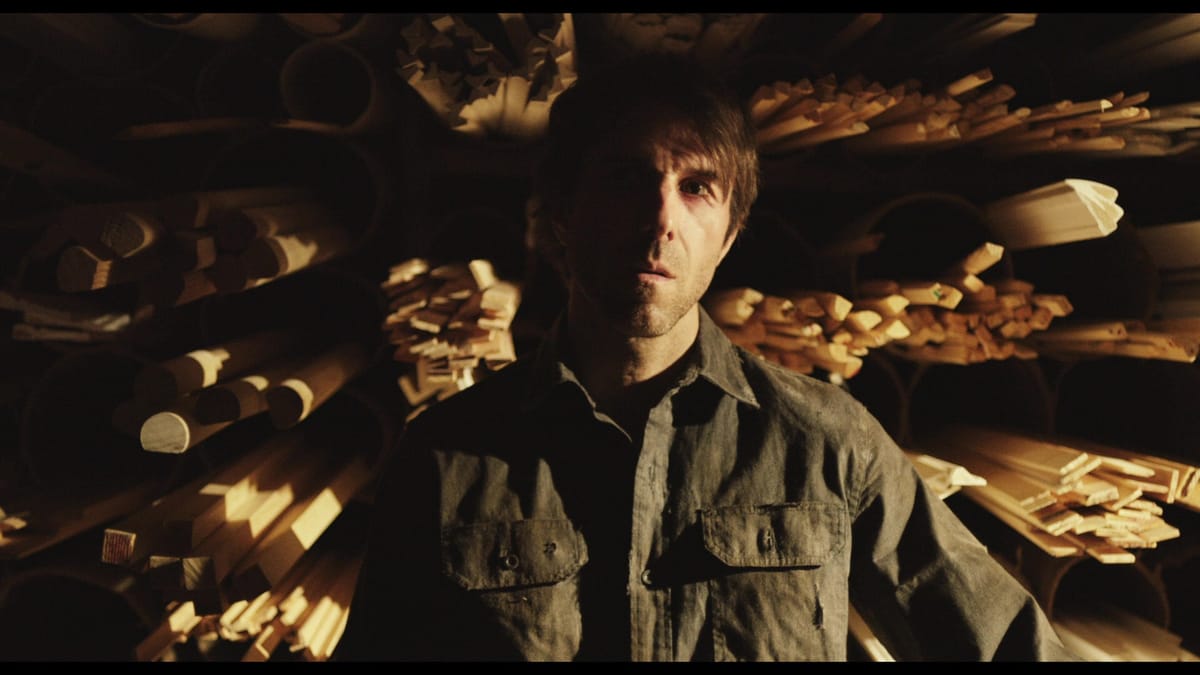
A new Larry Fessenden picture is always cause for celebration. I’ve been a fan of the lo-fi, high-concept horror auteur since he broke onto the genre scene with Habit, a New York vampire picture that wasn’t the first to employ addiction as a metaphor for bloodsucking, but used it in a way that fuelled the film’s grubby, desperate aesthetic.
Is the woman (Meredith Snaider) who draws Fessenden’s alcoholic Nick into darker and darker places really a vampire with a hold on his immortal soul, or is he just making up a reason to go back to her? It ultimately doesn’t matter – a tragedy is a tragedy – but Fessenden’s ability to play with that ambiguity both textually and meta-textually gives the film a weight, and an intelligence, that rewards repeat viewings. The rest of his work is just as thoughtful, toying with the real-world ramifications of Frankensteinian creatures, wendigos and other ancient mythology. Sadly, the Scream Factory collection of his early films is out of print but Larry is nothing if not industrious; hopefully he’ll have those masters back in circulation before too long.
And until then you can occupy yourself with Fessenden’s latest, the 2023 werewolf drama Blackout – which comes to Blu-ray this week in a special collector’s edition in Dark Sky Films’ new Blu-ray imprint, Dark Sky Selects.
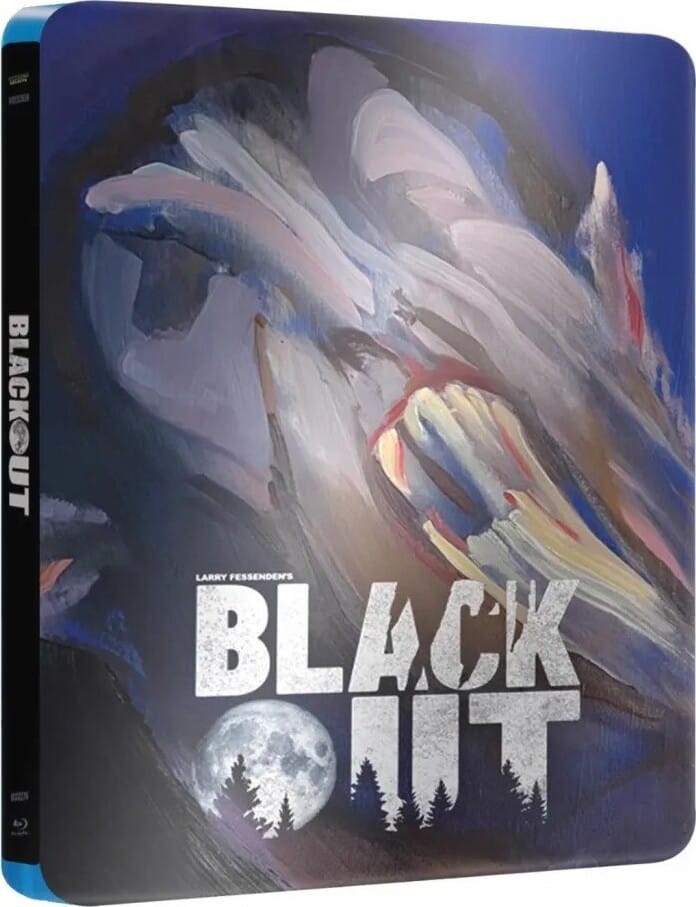
Blackout stars Alex Hurt as Charley, a soft-spoken painter who’s returning to his hometown of Talbot Falls after a month’s absence – just in time for the full moon. We hear bits and pieces about who Charley used to be – a well-liked guy, in a long-term relationship with Sharon (Addison Timlin) and more or less on the right side of the ongoing tensions around migrant labor and deforestation – but that’s not who he is these days.
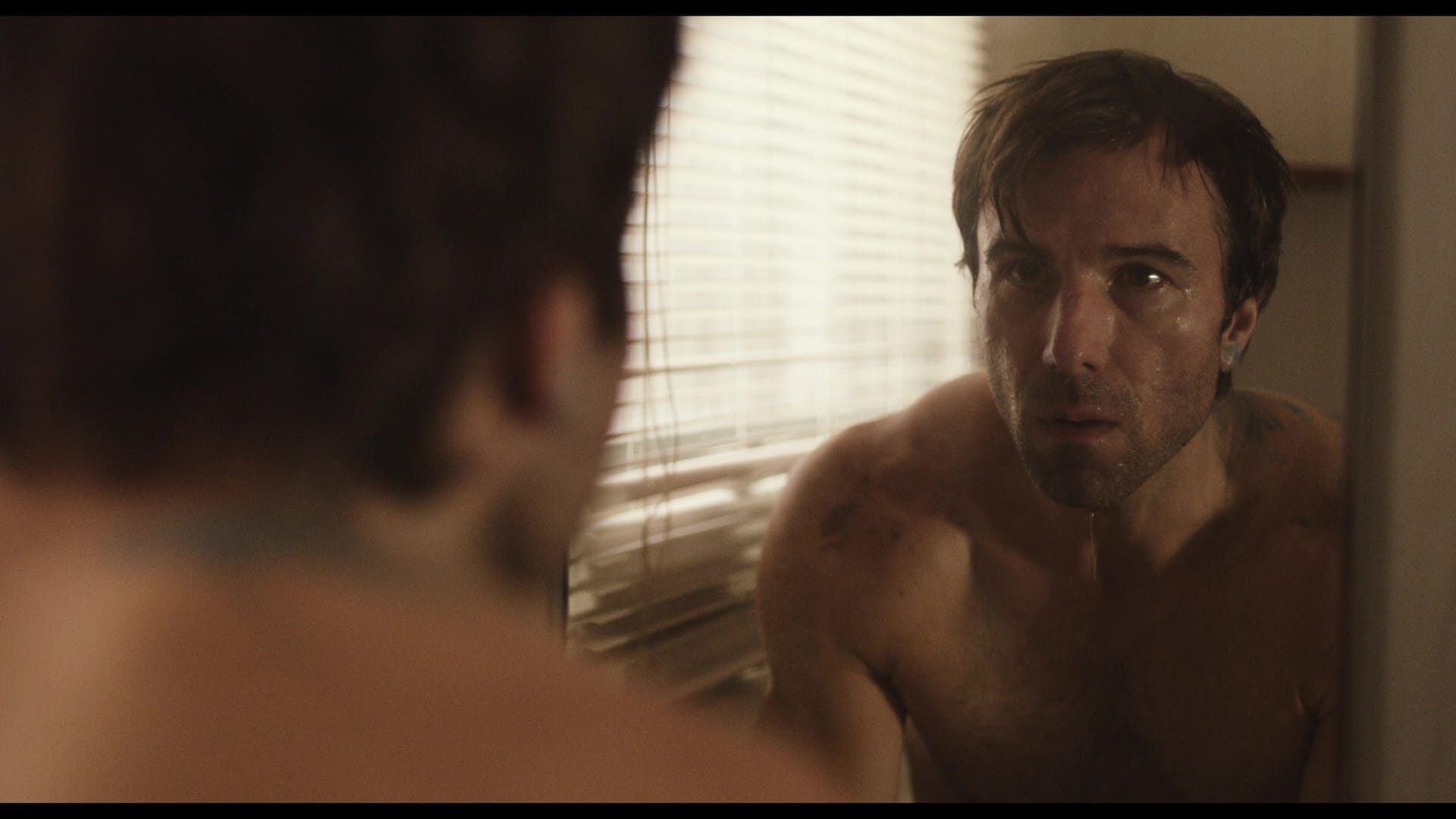
These days, Charley is a functional alcoholic who paints nightmarish faces of the dead and dying rather than the pleasant studies of landscapes and buildings on which he made his name. He abandoned Sharon and left town. But now he’s back, and he’s going around saying goodbye to people.
The best werewolf movies always have an element of tragedy in them – The Wolf Man and An American Werewolf in London specifically introduce their protagonists as happy, well-adjusted fellows who wind up alone and miserable, trying to find a way to break the curse that’s been visited upon them. Dr. Jekyll chose to test his formula on himself, and Bruce Banner built his gamma bomb, but these guys are just victims of circumstance, and so is Charley. He knows what he is, he’s had some time to think about his situation, and he’s made a plan. He’s trying to set a few things right before he follows through on it. But things keep getting away from him, and people keep ending up dead.
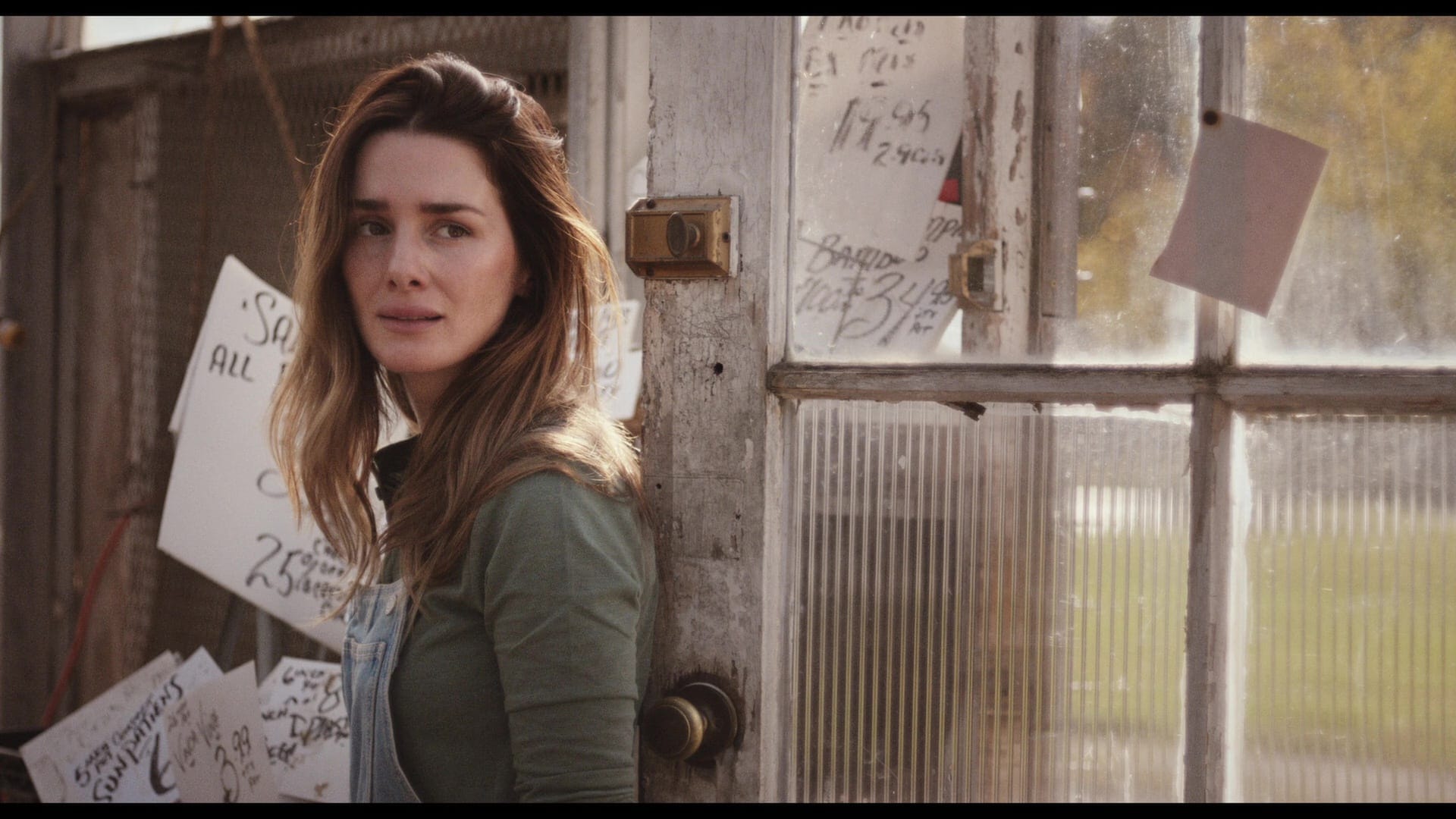
Where Habit was ambiguous about the nature of its hero’s plight, Blackout is much more pragmatic. Charley is a werewolf, haunted by flashes of the violence he commits under the spell of the full moon, and Hurt plays the full weight of that knowledge. But Charley’s also trying to do the right thing on some other fronts, working to expose the questionable dealings of Sharon’s industrialist father (Marshall Bell) with a cache of suspicious papers he inherited from his own dad (played, in photos, by Alex Hurt’s late father William).
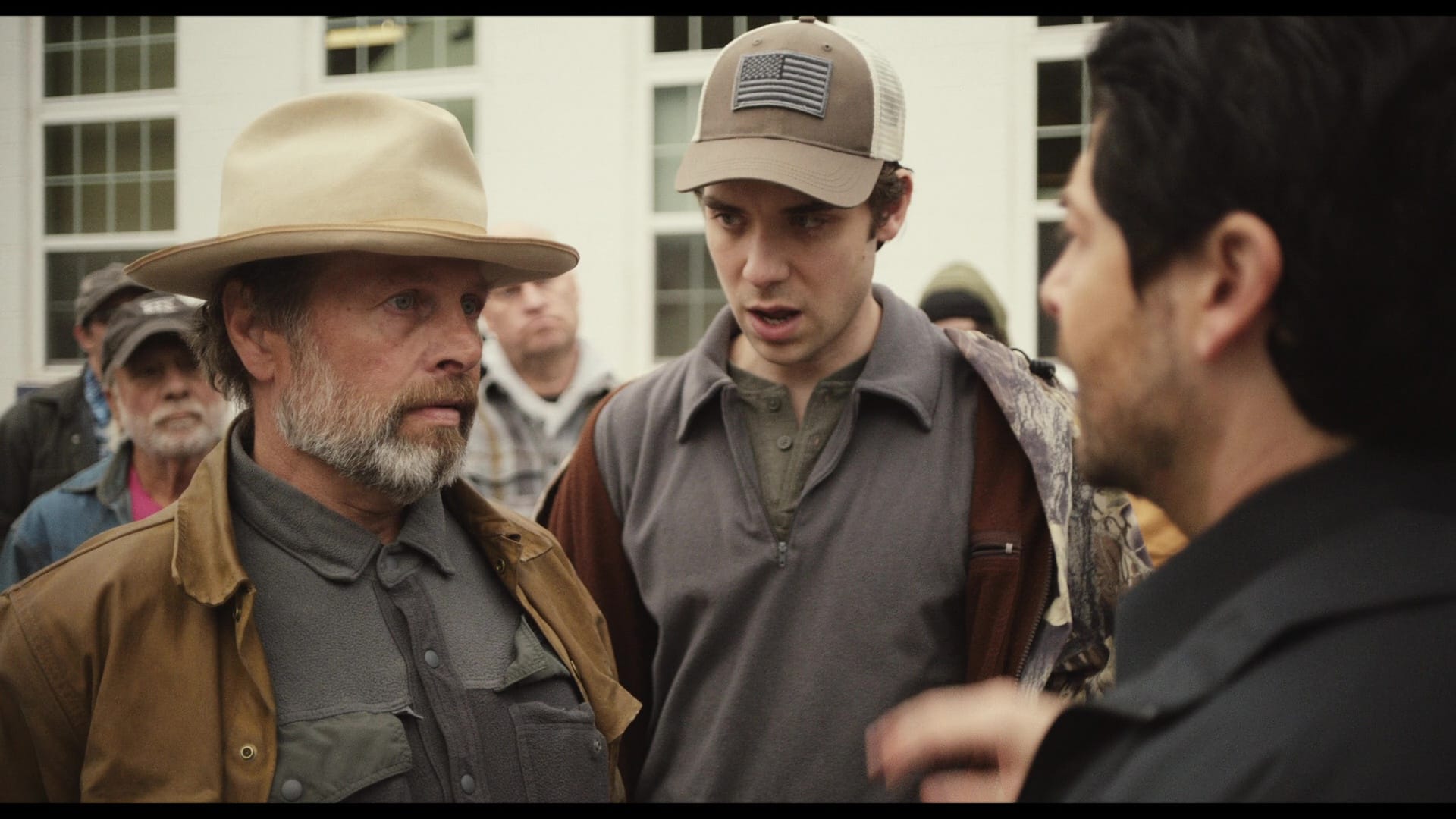
Lycanthropy isn’t the only thing tainting the town, as it turns out: The simmering malfeasance in Talbot Falls may or may not be the reason Sharon’s father is trying to stoke xenophobic sentiment among the white population. Or maybe he’s just a racist as well as a cheat; Bell’s tendency towards bilious spite whenever he sees Charley certainly feels genuine.
And in addition to Bell, Blackout is dense with character actors enjoying the chance to shine: Barbara Crampton turns up as a lawyer pal of Charley’s, Motell Gyn Foster plays the one man he trusts to help him execute his plan, Joseph Castillo-Midyett and Ella Rae Peck have a charming chemistry as cops investigating the sudden rash of violent deaths, James Le Gros and Kevin Corrigan pop up in small roles as locals and Fessenden’s indie comrade-in-arms Joe Swanberg – who once made a movie called Silver Bullets – turns up for a scene.
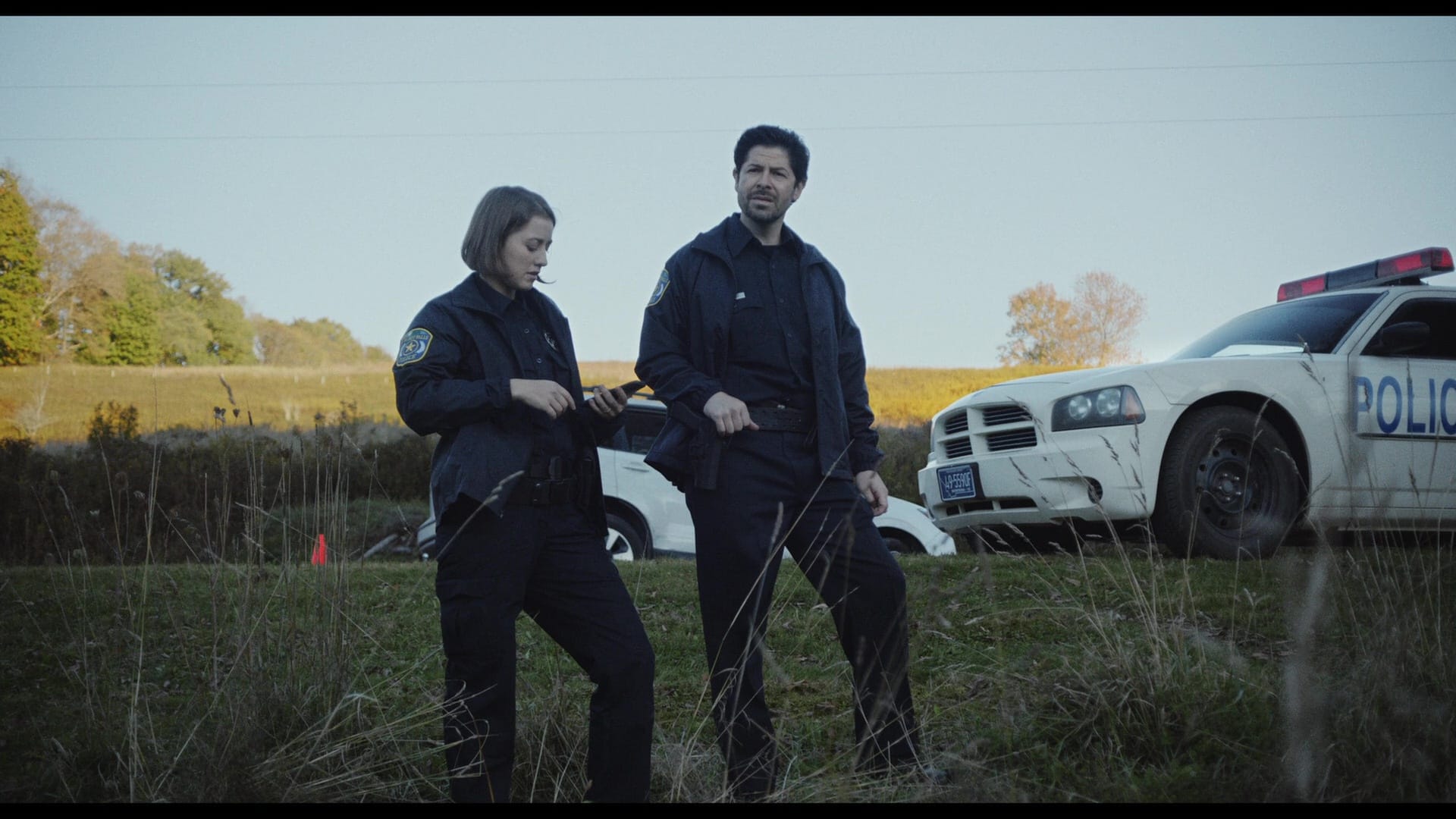
But the whole thing comes down to Hurt’s exhausted performance as Charley, and it’s a good one. Fessenden knows the drama of any werewolf story is in the man, not the monster, and he gives Hurt a lot of room to play his heartsick, unraveling hero.
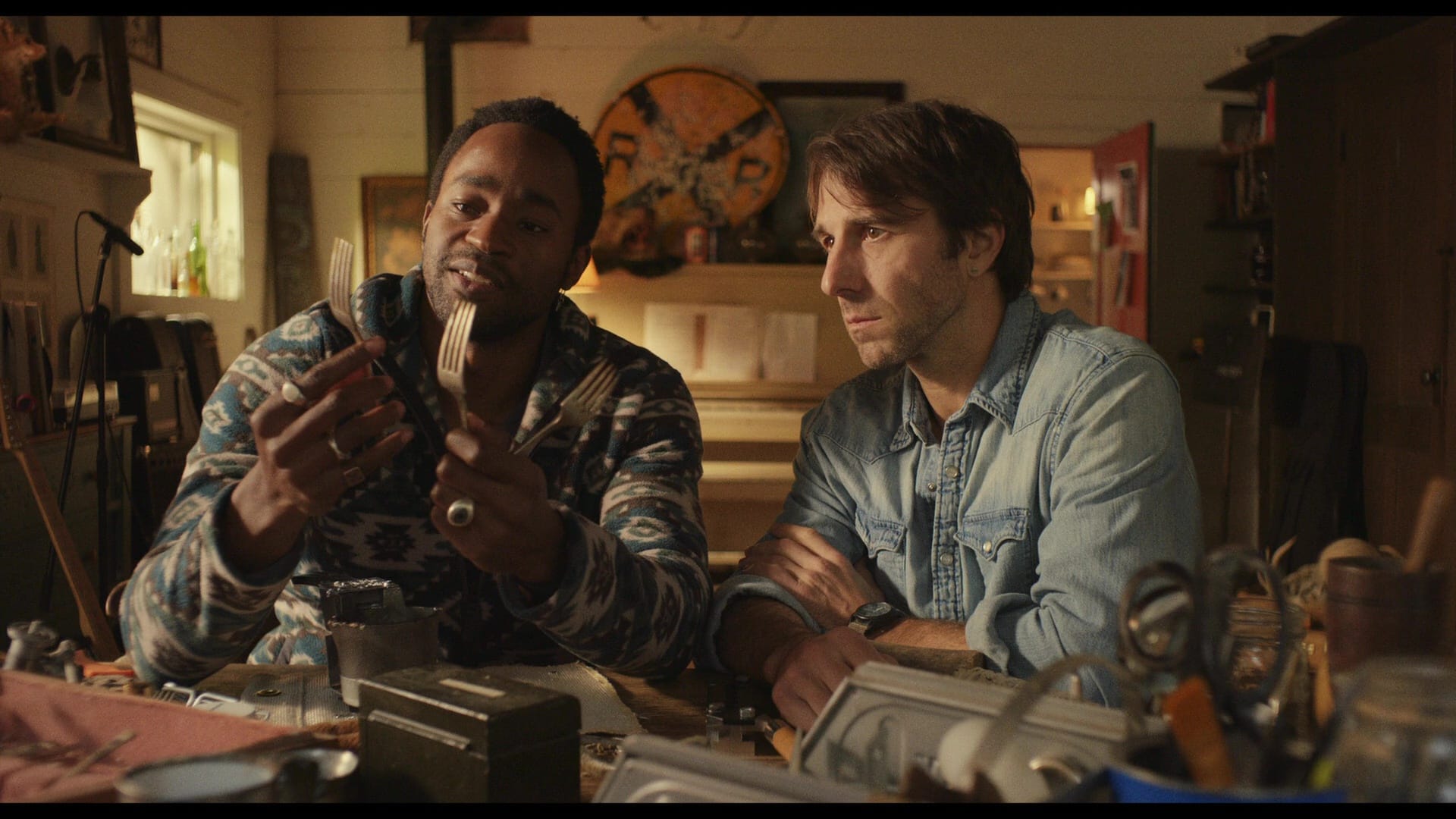
Charley’s constantly apologizing to people in Blackout, both for things they know about and things they don’t, and there’s a genuine humility to Hurt’s performance that feels entirely right for someone in Charley’s situation. He’s on an amends tour: He’s sorry, and he’s sad, and he’s trying to put an end to everyone’s suffering. It might even work. Or it might go terribly wrong.
Produced in a limited edition of 1,000 pieces, the Blackout Blu-ray offers a typically thoughtful audio commentary from Fessenden – every one of these is basically a monologue about how to make compelling genre pictures with limited resources – and a 75-minute production documentary that demonstrates even the most modest monster movie requires an awful lot of work.
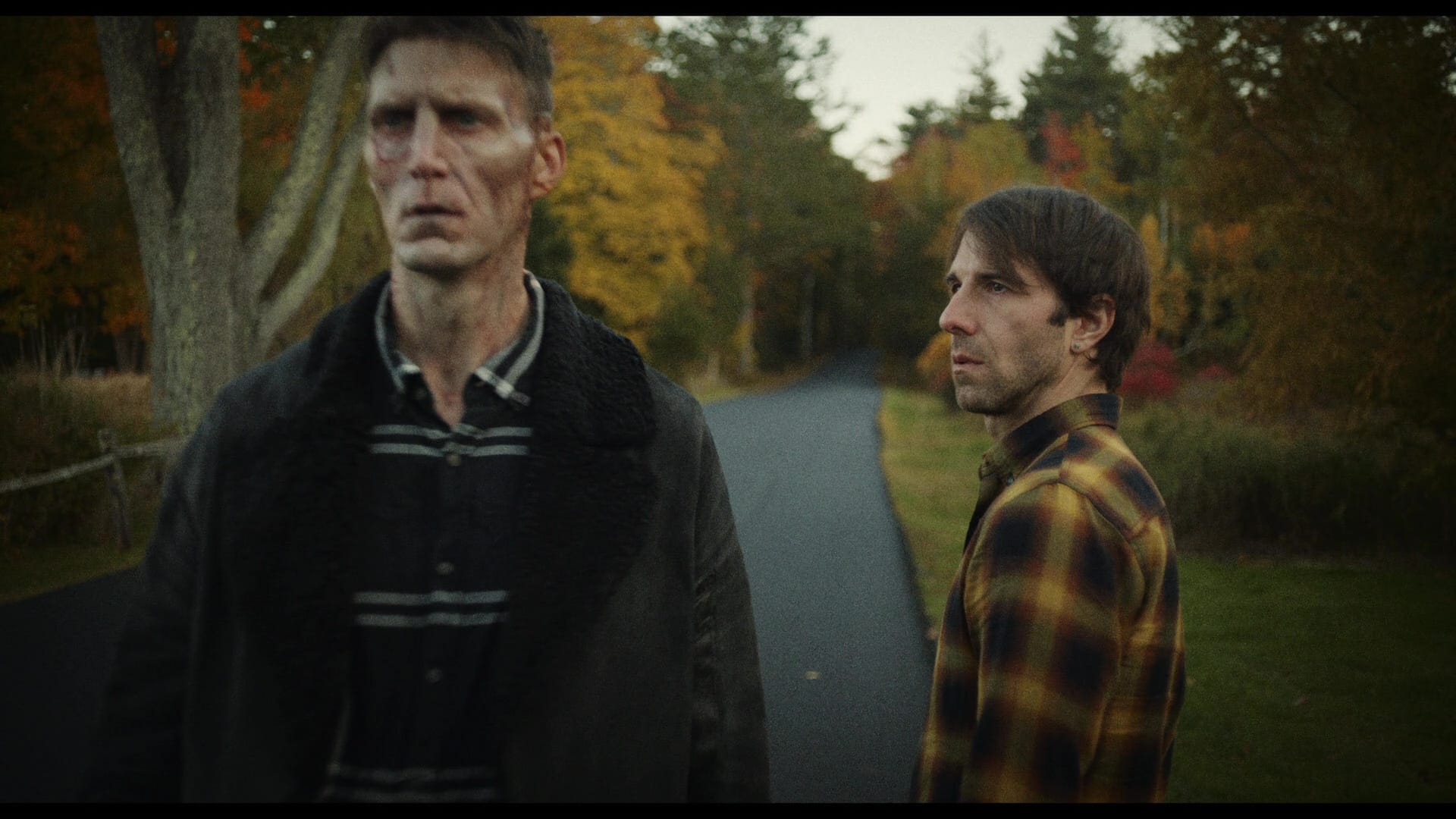
Other extras include “Monster Mash Photo Shoot”, which finds Hurt’s Charley joined by Alex Breaux, the star of Fessenden’s 2019 Frankenstein riff Depraved, for a classic creature face-off, and “Larry Fessenden’s Monsterverse”, a montage of clips from Habit, Depraved and Blackout. (I’m still waiting for his take on the Invisible Man, by the way.) The disc also includes Fessenden’s episode of the “Tales from Beyond the Pale” podcast that served as the jumping-off point for Blackout’s script.
And now, for a total change of pace, let me direct you to another collector’s edition: Patricio Guzmán’s The Battle of Chile, which arrives on Blu-ray this week from Icarus Films and Vinegar Syndrome.
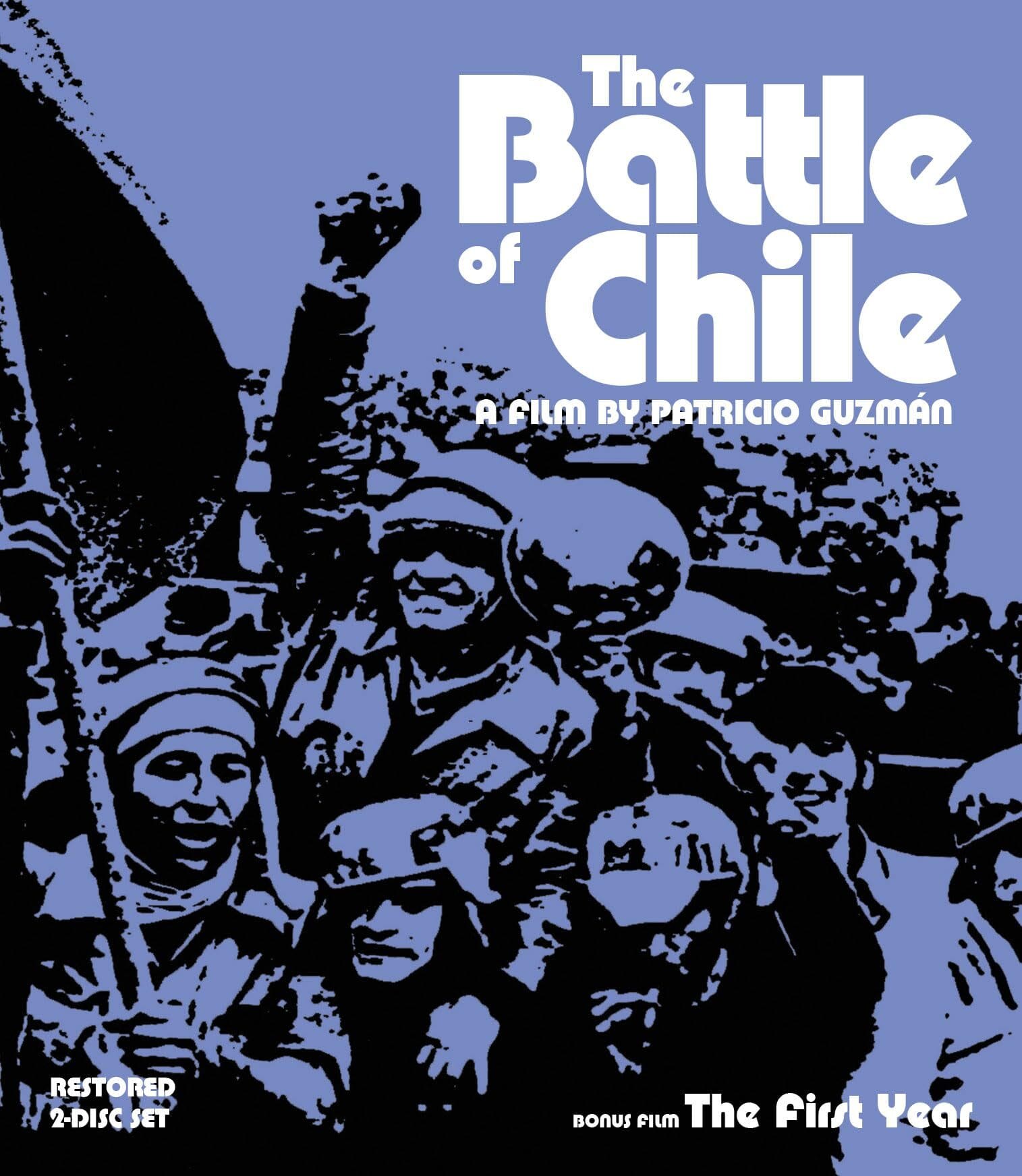
No werewolves in this one, but I bet someone could build a pretty strong allegory for beasts who disguise themselves as responsible members of society who don’t want to eat your face in the slightest; they just have Very Serious Concerns about the way things are going.
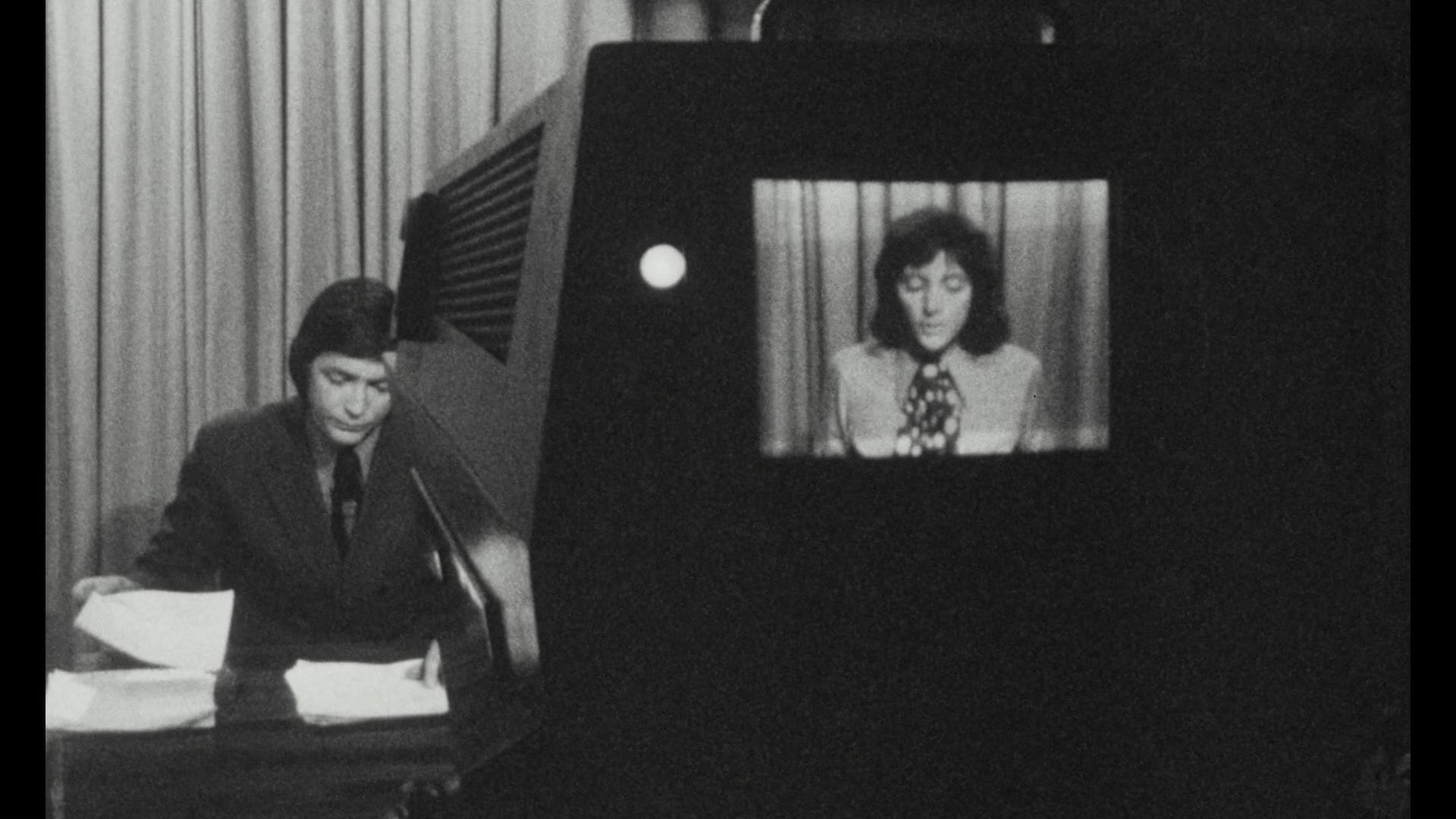
A three-part, four-and-a-half hour documentary about the election of Salvador Allende’s socialist government and its eventual overthrow on September 11, 1973, it’s a watershed in documentary cinema, with Guzmán and his colleagues drawing on nine months of footage to craft a clear-eyed, heartsick examination of the collapse of democratic idealism under interference from external actors.
(The U.S. worked very hard to prevent Allende’s election in the first place, and even harder to unseat him and install Augusto Pinochet in his stead. Thousands died, and tens of thousands more were tortured and imprisoned. In related news, I don’t believe in hell but I’d build one for Henry Kissinger.)
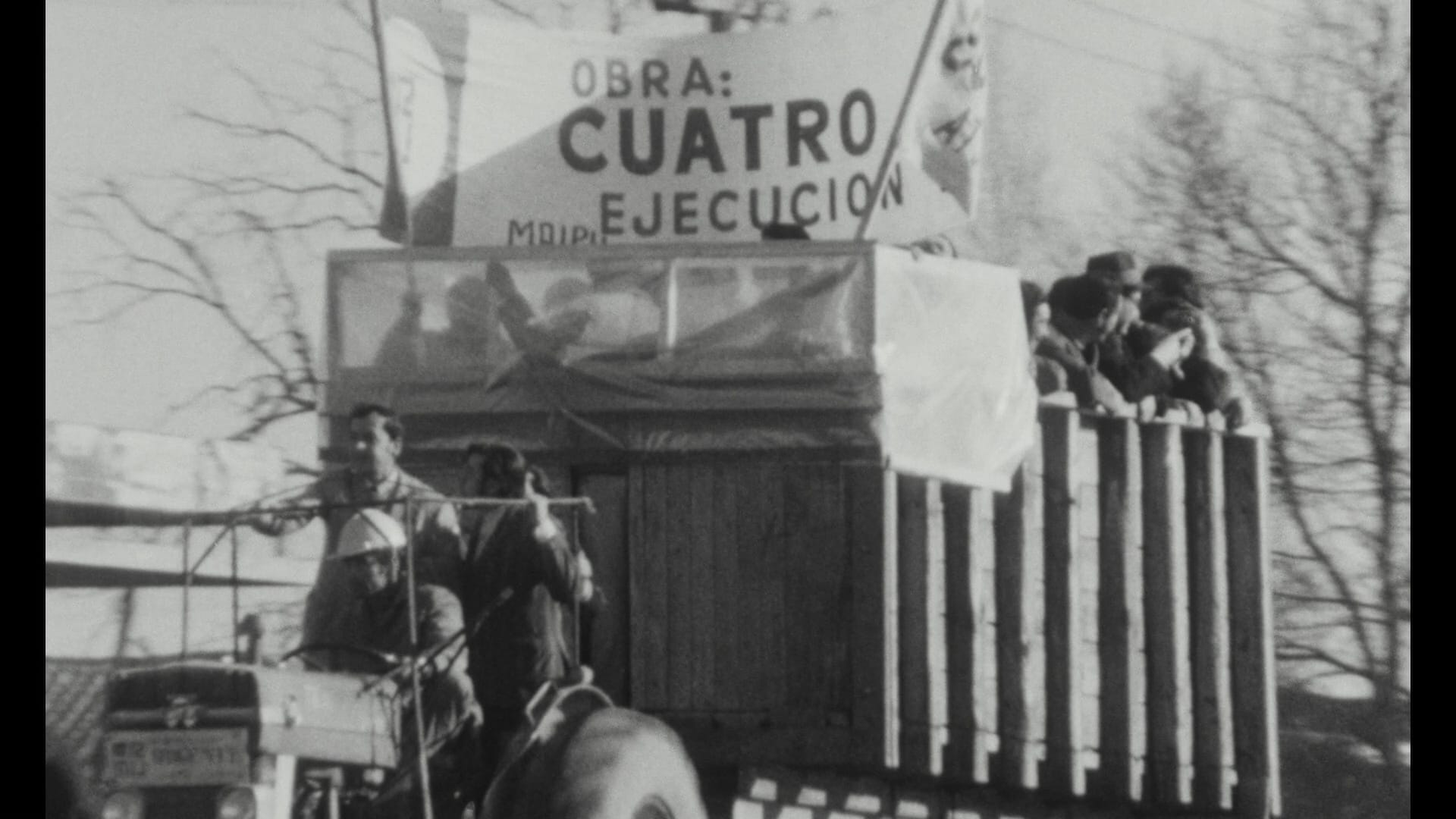
Measured in form and outraged in function, The Battle of Chile builds the case that Allende’s government was undermined and delegitimized even before his election by a loose cadre of fascists and bourgeois agitators who feared his socialist platform. It’s a good old-fashioned class war escalating into real violence, and Guzmán offers scene after scene of rhetorical escalation and confrontations in a way that cannot help but parallel the situation in present-day North America, especially the U.S. Fifty years later, we’ve learned nothing about propaganda and bad-faith arguments. What’s the saying? History doesn’t repeat itself, but it does rhyme.
The Icarus Blu-ray offers a splendid 4K restoration of The Battle of Chile, which brings the image to a level of clarity I wouldn’t have thought possible. I’ve seen Guzmán’s doc projected in 35mm and again on Icarus’ 2009 four-disc DVD special edition, and this presentation is like watching the movie after cataract surgery.
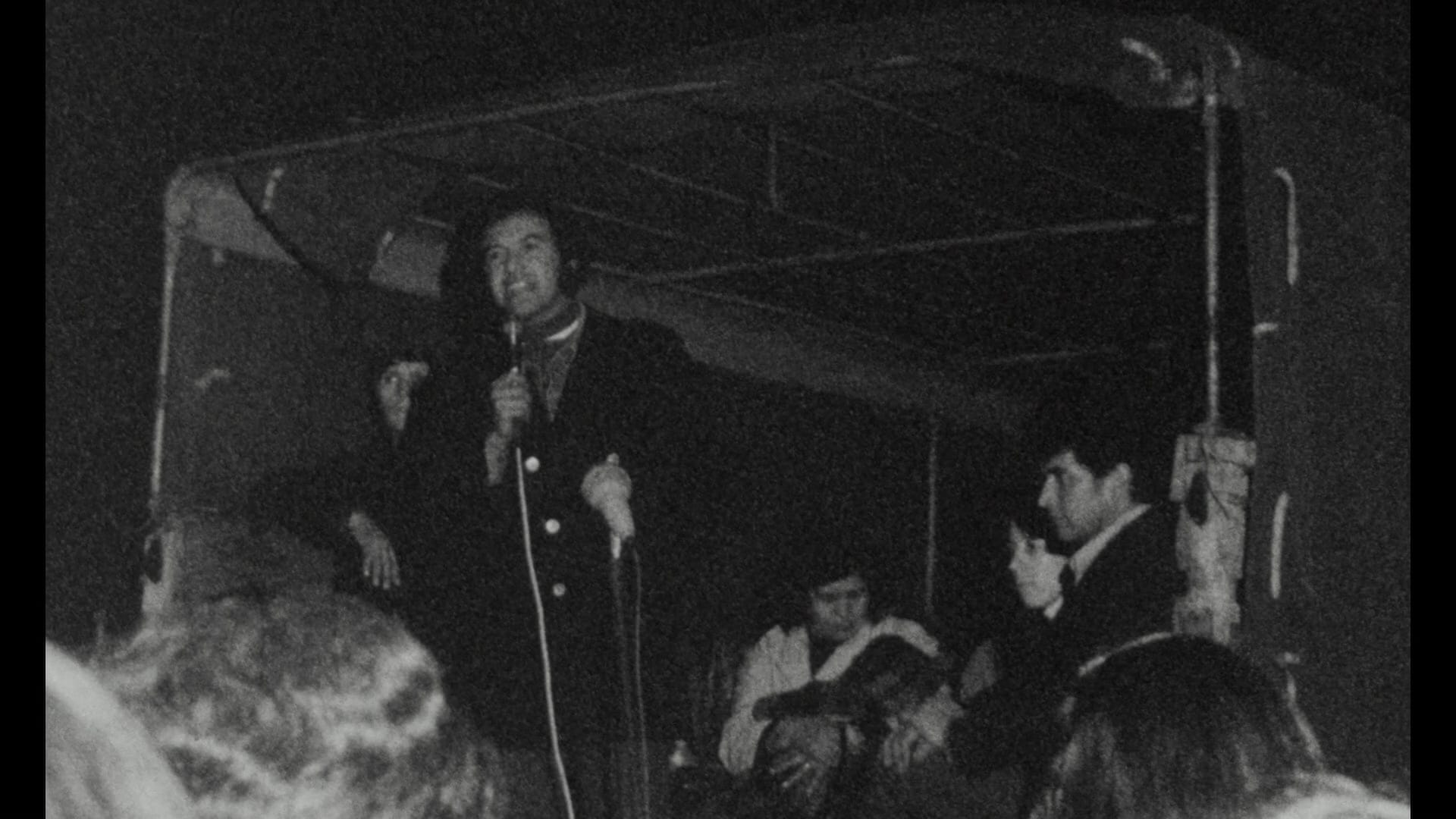
The black-and-white images are sharp and alive, and while the 1080p/24 image doesn’t have the tactility it might in true 4K, it looks great. Sound is also excellent, naturalistic but never muddied. The disc also includes a new restoration of The First Year, Guzmán’s 1972 look at the fledgling months of Allende’s administration that now serves as a sort of prequel to The Battle of Chile. It’s a much more optimistic work, of course.
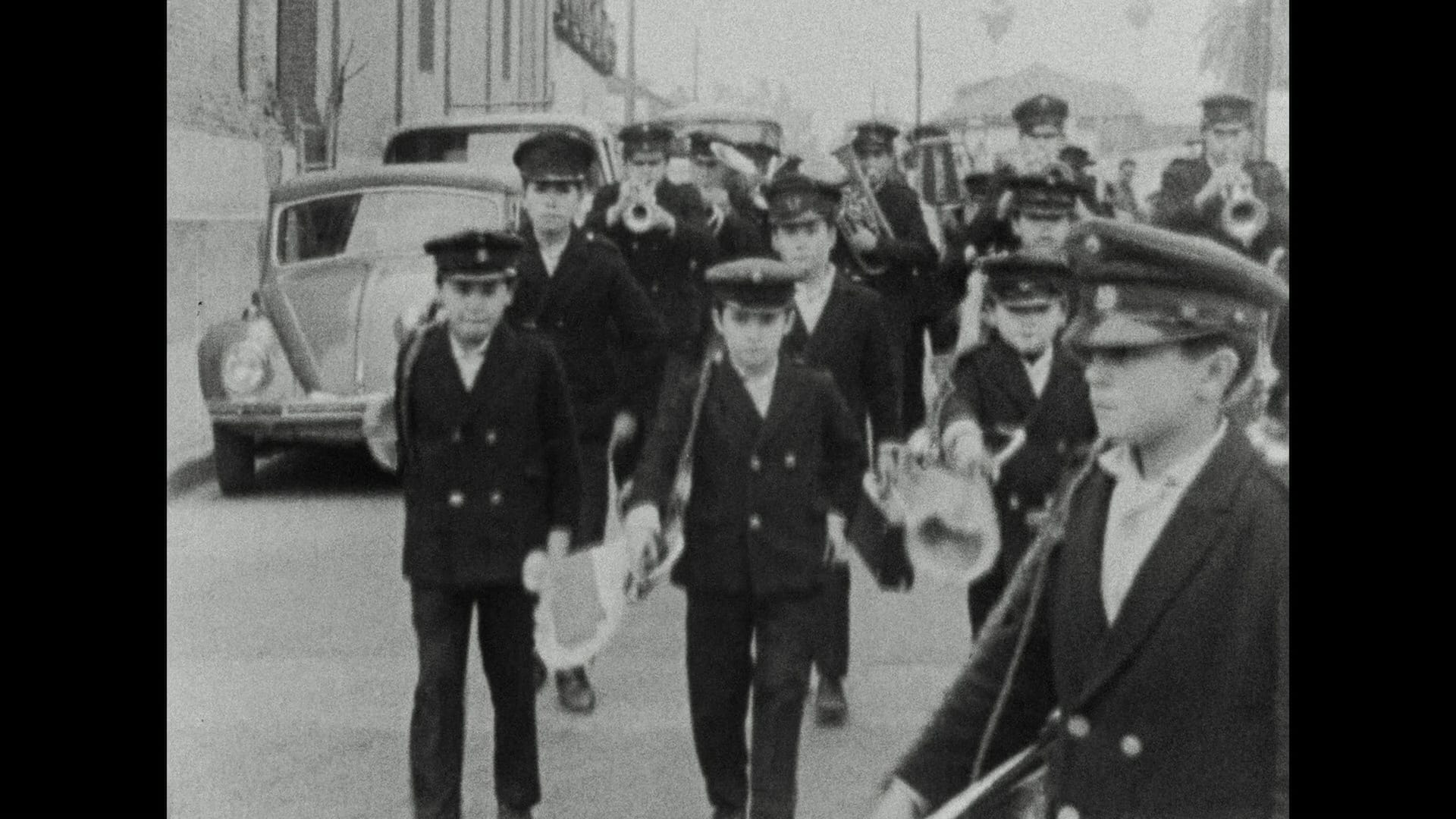
Incidentally, if you have that older DVD you might want to hang on to it, as that package is the only place to find Guzmán’s 1997 documentary Chile, Obstinate Memory, in which the filmmaker goes home to screen his film to the next generation of students and activists, and check in on some of his original subjects. For whatever reason, Icarus didn’t include it on the BD release.
Blackout is now available on Blu-ray from Dark Sky Films; The Battle of Chile is now available on Blu-ray from Icarus Films.
Up next: Speaking of William Hurt, Via Vision just released a lovely boxed set of Smoke and Blue in the Face, and Severin’s September releases make my inbox a lot weirder than usual. More soon.
